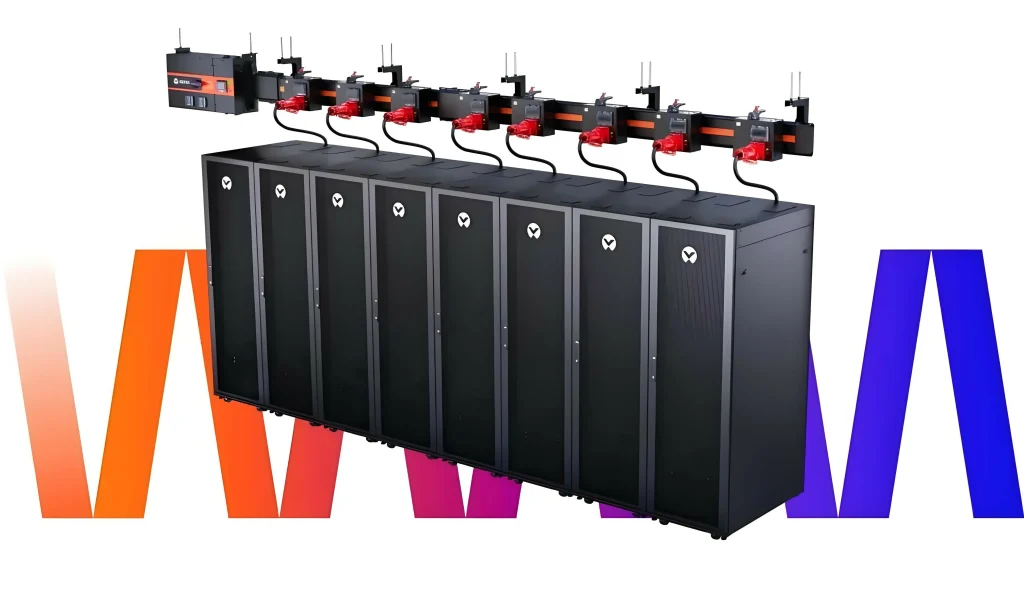1.Future Trends in Busbar Technology: Smart Systems and Innovations
The landscape of electrical power distribution is evolving rapidly. Future Trends in Busbar Technology show that busbar products and busbar systems are no longer just passive conductors—they are becoming intelligent components capable of enhancing efficiency, reliability, and sustainability in modern installations. From traditional copper busbar and aluminum busbar designs to insulated busbar and busbar trunking solutions, the integration of digital technologies and smart monitoring is reshaping the industry.
For companies looking to stay ahead, understanding innovative busbar technology for modern electrical systems is critical. Early adoption of smart busbar products for energy-efficient power distribution allows facilities to optimize operations, reduce downtime, and future-proof electrical infrastructure. This guide explores future-ready busbar systems with remote monitoring, IoT-enabled busbar technology, and other advanced busbar solutions for industrial automation.
2.Why Smart Busbar Systems Are the Future
The shift toward intelligent busbar systems for data centers and smart factories is driven by several key factors:
1.Energy Efficiency – Smart busbars monitor real-time load conditions, minimizing energy losses.
2.Predictive Maintenance – Sensors detect hotspots or abnormal currents, enabling preemptive repairs.
3.Integration with IoT – Buy smart busbar systems with IoT integration to centralize data and streamline operations.
4.Sustainability – Advanced materials and monitoring reduce waste and support green energy projects.
Facilities adopting these technologies can achieve higher uptime, lower operating costs, and improved electrical safety.
3.Key Innovations Shaping Busbar Technology
1. IoT-Enabled Busbars
IoT-enabled busbar technology allows real-time monitoring of voltage, current, and temperature. This provides actionable insights for operators and supports predictive maintenance strategies.
Benefits:
Detect anomalies before failure
Optimize energy usage
Enable remote diagnostics
2. Predictive Maintenance Capabilities
Next-generation busbar products with predictive maintenance incorporate sensors to track wear and degradation over time. By predicting potential faults, maintenance teams can schedule interventions proactively, avoiding costly downtime.
Example Use Case:
A manufacturing plant uses intelligent copper busbar networks to monitor load peaks. Alerts trigger preventive inspections, preventing unplanned shutdowns.
3. Integration with Renewable Energy Systems
Smart busbars are increasingly used in solar farms, wind energy, and battery storage solutions. They allow seamless monitoring and adaptive load balancing to optimize renewable energy distribution.
Advantages:
Reduced energy loss
Enhanced grid stability
Support for sustainable busbar technologies for green energy projects
4. Custom Smart Busbar Solutions
For complex industrial setups, custom smart busbar manufacturing services provide tailored solutions that match load requirements, physical layout constraints, and monitoring needs.
Features:
IoT sensors embedded in busbar components
Integration with SCADA or building management systems
Modular busbar trunking design for scalability
4.Benefits of Intelligent Busbar Systems
| Benefit | Description |
| Real-time Monitoring | Track current, voltage, and temperature across networks |
| Reduced Downtime | Predictive maintenance prevents unexpected failures |
| Energy Optimization | Minimize losses and improve efficiency in industrial plants |
| Scalability | Modular busbar trunking allows future expansions |
| Sustainability | Supports green energy integration and reduces waste |
5.Considerations for Industrial Adoption
When evaluating how smart busbar systems improve electrical efficiency, consider:
1.Compatibility – Can they integrate with existing electrical infrastructure?
2.Cost-effectiveness – Are initial investments offset by operational savings?
3.Data Management – Does your team have the capability to leverage IoT data effectively?
4.Vendor Expertise – Choose smart busbar product suppliers with innovation focus and proven track records.
6.FAQs – Future of Busbar Technology
1: What are the latest trends in busbar technology?
Smart monitoring, IoT integration, predictive maintenance, and renewable energy compatibility are leading trends.
2: How does predictive maintenance work with smart busbars?
Sensors track electrical and thermal parameters, sending alerts before failures occur.
3: Are smart busbar systems cost-effective for industrial use?
Yes, the reduced downtime, energy savings, and enhanced safety often outweigh upfront costs.
4: How to choose future-proof busbar products for my facility?
Consider IoT capabilities, modular design, vendor support, and integration with renewable or automated systems.
7.How to Prepare for Smart Busbar Upgrades
1.Conduct a baseline energy and load assessment.
2.Identify areas where intelligent busbar systems can improve monitoring or efficiency.
3.Work with suppliers to buy smart busbar systems with IoT integration tailored to your needs.
4.Train staff to interpret data and use predictive maintenance tools effectively.
8.Future Outlook
The next decade will see advanced busbar solutions for industrial automation becoming standard. Key areas of innovation include:
1.AI-driven fault prediction
2.Remote load management
3.Enhanced materials for higher current density and thermal performance
4.Integration with digital twins for smart factories
Early adoption ensures facilities remain competitive and future-ready busbar systems maintain operational excellence.
This article was written by a senior electrical systems engineer at Welle , specializing in busbar manufacturing, smart electrical systems, and industrial automation. With over 12 years of experience, the author helps facilities integrate intelligent busbar systems to enhance efficiency, reliability, and sustainability.

